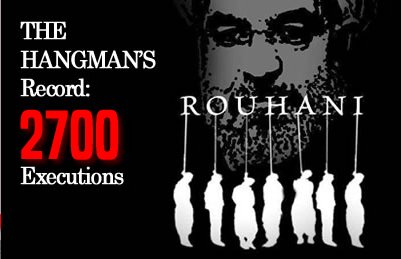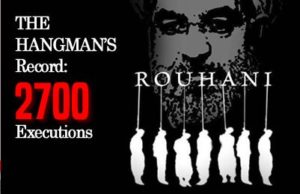
 The Hill: Nearly a year after the implementation of the nuclear deal with Iran, known as the Joint Comprehensive Plan of Action (JCPOA), and the ensuing fanfare regarding the possibility of an age of reform within a feeble theocracy, Tehran’s behavior has taken a turn for the worse. The most tangible evidence of this can be seen in its treatment of the Iranian people.
The Hill: Nearly a year after the implementation of the nuclear deal with Iran, known as the Joint Comprehensive Plan of Action (JCPOA), and the ensuing fanfare regarding the possibility of an age of reform within a feeble theocracy, Tehran’s behavior has taken a turn for the worse. The most tangible evidence of this can be seen in its treatment of the Iranian people.
By any measure, the human rights situation in Iran has dramatically deteriorated. Indeed, in December 2016, the United Nations condemned Iran’s abuses for the 63rd time.
This should encourage the new U.S. administration to take on a much more vocal and active role regarding the regime’s unbridled rights violations, including the placement of the dossier on the U.N. Security Council’s agenda.
Consider the facts. The Iranian regime has stepped up executions dramatically in recent years. Amnesty International has called it a “staggering execution spree” while underscoring that Iran has the highest number of executions per capita in the world.
Over 2,700 executions have been carried out since Hassan Rouhani took office in 2013, the most in the past 25 years. Victims include political dissidents like Gholamreza Khosravi, an activist of Iran’s principal opposition, the Mujahedin-e Khalq (PMOI/MEK), who was hanged in 2014 simply for providing financial assistance to a satellite television station.
On Dec. 19, the U.N. General Assembly expressed “serious concern at the alarmingly high frequency of the imposition and carrying-out of the death penalty by the (Iranian regime)… including executions undertaken for crimes that do not qualify as the most serious crimes, on the basis of forced confessions or against minors and persons who at the time of their offence were under the age of 18.”
The U.N. censure resolution also called on the Iranian regime “to ensure, in law and in practice, that no one is subjected to torture or other cruel, inhuman or degrading treatment or punishment.”
“Iran has the shameful status of being the world’s last official executioner of child offenders,” Amnesty International stated.
“Execution of two juvenile offenders in just a few days makes a mockery of Iran’s juvenile justice system,” AI announced on Oct. 14, 2015.
Imprisoned activists are routinely subjected to torture and ill treatment by the regime. Many female activists are deprived of medical treatment as a form of psychological and physical torture.
Maryam Akbari Monfared, for example, is one of the prominent prisoners who is suffering from serious illnesses in the Iranian regime’s jails, but is deliberately deprived of treatment. She called for an investigation into the killing of thousands of prisoners in 1988.
Women are treated worse than second-class citizens. Since 2014, the Majlis (parliament) has adopted four legislations further limiting women’s rights, restricting access to employment and education.

